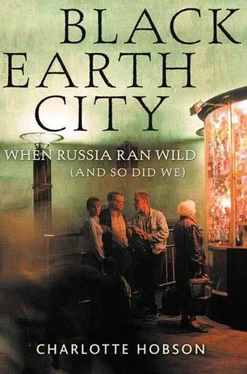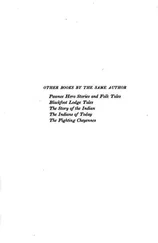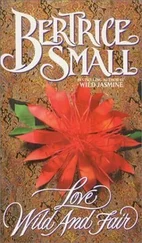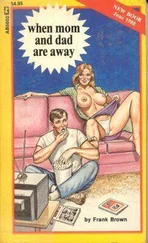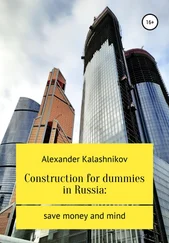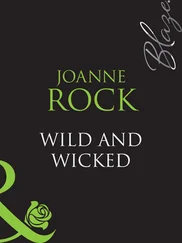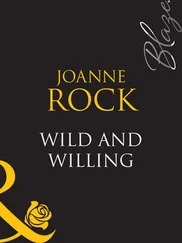Now and then the bus stopped to let a couple of dachniki out. They shouldered their bags and trudged away, and I was reminded of a proverb quoted by Pasternak: “Life is not as easy as crossing a field.” The black earth, freshly sliced and turned, looked rich enough to spoon straight into one’s mouth. As the sun climbed, the wet soil began to steam and the bus was filled with its smell. When the Nazis invaded the Ukraine, they were so astonished by the black earth that they looted it. A whole convoy of trucks was loaded up and sent back to Germany; even now there must be German farmers who, every springtime, lift their heads and sniff this same, delicious scent, as sweet and dark as chocolate pudding.
In Kursk, one of Slava’s relatives, Anatoly, was waiting for us at the station. He was a huge man. His neck was corded with tendons, his chest bulged, and his face was full of guileless, rapacious delight.
“Welcome!” he bellowed, thumping John on the back. “Guests! You’ve come far—”
“Well, only from Voronezh,” said John. He looked more nervous than ever.
“Far!” insisted Anatoly. “We must celebrate. Immediately.”
We bounced along the wide roads of Kursk in his car, a squashy Pobeda—meaning “Victory”—to an apartment on the outskirts of town.
“Welcome, dear guests,” beamed Slava’s father and mother, shepherding us into the kitchen. “You’ll be hungry after your journey. Sit down, please! Anatoly, will you—?”
Anatoly nodded and took up a glass. “Dear friends, we are glad to welcome you into our home. There will be many toasts today, and each one will be longer than the last, so the first one had better be short. To our acquaintance!”
So we tossed back a shot of vodka, which, at eleven in the morning, on an empty stomach, a five o’clock start, and a long bus ride, had an explosive effect. The order had gone out: take no prisoners. The festivities were beginning.
In the summer of 1943, the Kursk plain was the site of the greatest tank battle in history. Manstein threw whole panzer armies into an attempt to destroy Russian armor and so to stave off what he already knew was an inevitable defeat. The plan, having claimed thousands of lives, failed. After the war the city was rebuilt around a series of huge memorials that are still at the center of every ritual event, and weddings in particular. Following the registry office service, Lucy and Slava were driven to each memorial in a taxi decorated with Russian and British flags. Under the solemn gaze of the video camera, the bride and groom crossed expanses of concrete paving and laid carnations before the lists of the dead. This was the first part of the ceremony.
Back in the apartment, Slava’s parents were waiting to greet their son and daughter-in-law with bread and salt. A horseshoeshaped table had been set up in the living room and loaded with dishes of zakuski , salads, meats, smoked fish, and every conceivable Russian delicacy. Uncles and aunts were standing in the hall, each ruddier, jollier, and stouter than their neighbor.
“Oh, what a beauty,” they cried, kissing Lucy and pinching her cheek. “Now come along, come along.”
And they hurried into the living room to take their places and boss each other around some more. Slava’s mother, carrying in still more plates of food, nodded at Slava and Lucy.
“Sit down, you two.”
They sat at the top of the horseshoe, holding hands and looking shyly around them.
“Now, Anatoly, please!” called out the jolliest of all the uncles, raising his glass.
“Spring has come, the trees are in leaf after our long winter,” Anatoly started, and the aunts settled down contentedly, recognizing the beginning of a good long toast when they heard one. “The most fortunate time of year for a wedding.” My mind drifted; I tried to imagine this scene taking place in Mitya’s parents’ apartment, and failed. Finally a change of tone from Anatoly signaled a conclusion. “May your life together be full of light, health, and joy.”
We drank to that and began on the zakuski . This was the second part of the ceremony. More toasts followed in quick succession, John and the rest of the guests outdoing one another in eloquence, the plates of zakuski emptied and were immediately replaced by even larger, fuller plates, and as the hours passed, the ritual repetition of good wishes gave the proceedings a faintly hypnotic air. Every now and then, the cry of Gorko! bitter—went up, which is the customary signal for the bride and groom to kiss. Slava and Lucy blushingly complied, while the most ribald of the uncles timed them on his stopwatch. And whenever there was a lull in the proceedings, the female witness, a determined blond called Ina, fulfilled John’s worst expectations by suggesting a toast na brudershaft , with linked arms.
“Oh, Ina!” everyone exclaimed, in the indulgent tone that meant “What a girl.” We looked on as the two witnesses drained their champagne glasses. John, laughing nervously, attempted to hold her away from him by bracing his arm at right angles to his body, but Ina seized him by the beard and kissed him all the same.
“What a handsome man,” said the elderly aunt sitting next to me. “If I was Ina’s age, I wouldn’t let him get away.” She roared with laughter. “There were no men when I was her age, you see. After the war there were seven women to one man, lucky boys—”
“Did you ever marry?”
“Oh yes, I married just before the war. Vladimir was his name, poor man, Vladimir Aleksandrovich. He was killed at Smolensk. He hadn’t had much of a life… Still, I shouldn’t talk about that here. Thank God those days are over.”
Evening had come; we’d been at the table for five hours at least, and Slava and Lucy were looking pale and overwhelmed. I sympathized; an age seemed to have passed since the morning. But the older generation showed no signs of slowing down.
“Come on, Charlotte!” the aunts suddenly announced. “Come with us! You know how to dance to this modern music.”
Someone put on a tape of the band Showaddywaddy and we danced in the hall—me in the center surrounded by middle-aged ladies. After a time we worked out a little routine that made them laugh so much they had to hold on to their bosoms.
“Don’t stop!” one of them gasped. “I’m just getting started.”
They quietened down a little after three in the morning, but when John and I left to catch the bus back to Voronezh, the aunts were beginning again, as spruce and rosy-cheeked as ever. They had stamina, that generation, and they approached an event such as this one with determination, not with our lightweight, stay-as-long-as-we-feel-like-it attitude. Each wedding party is a victory celebration, in a way, and a reiteration of Kursk’s heroic survival in 1943. Each marriage is a triumph of spring, of immortality. It demands time and application.
Early in May , Mitya and I walked past the shop called Sport and saw shiny fold-up bicycles being unpacked. Despite the fact that there was a constant shortage of bicycles and these were the first in the shop for months, some vestige of central planning had decreed that they should be sold for about fifty cents, or the price of a pot of honey. So I became the owner of a bright green bicycle. And when Mitya took his bike down from its place strapped to the ceiling of his parents’ hall, we started making our own pilgrimages to the countryside.
On Victory Day, a week or so after the wedding of Slava and Lucy, we pedaled out of town with a picnic in a knapsack. The streets were cleared of cars, and bunting was fluttering all the way along Revolution Prospect. Stalls selling vodka and buns had been set up at regular intervals along the sidewalk. Families were strolling down the center of the Prospect hand in hand, wearing their best clothes; their little daughters had ribbons at both ends of their braids. It was still early, but against the walls, the drunks were already lurching at one another and discussing impossibilities. Later on we were going to a jazz concert and other Victory Day festivities, but just for the afternoon, we were heading for the woods. The sky was glittering and cloudless and even in the center of town the smell of the forest could occasionally be detected, a sharp and bosky scent that drew us through the suburbs and along the river to the birch trees.
Читать дальше
